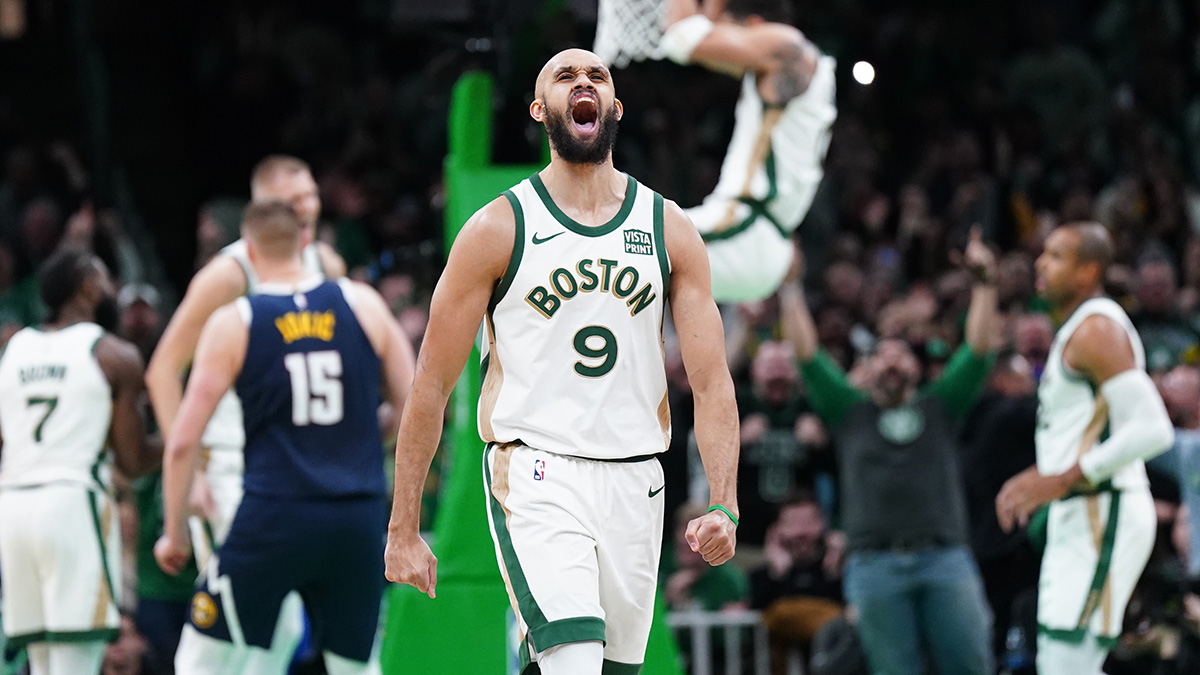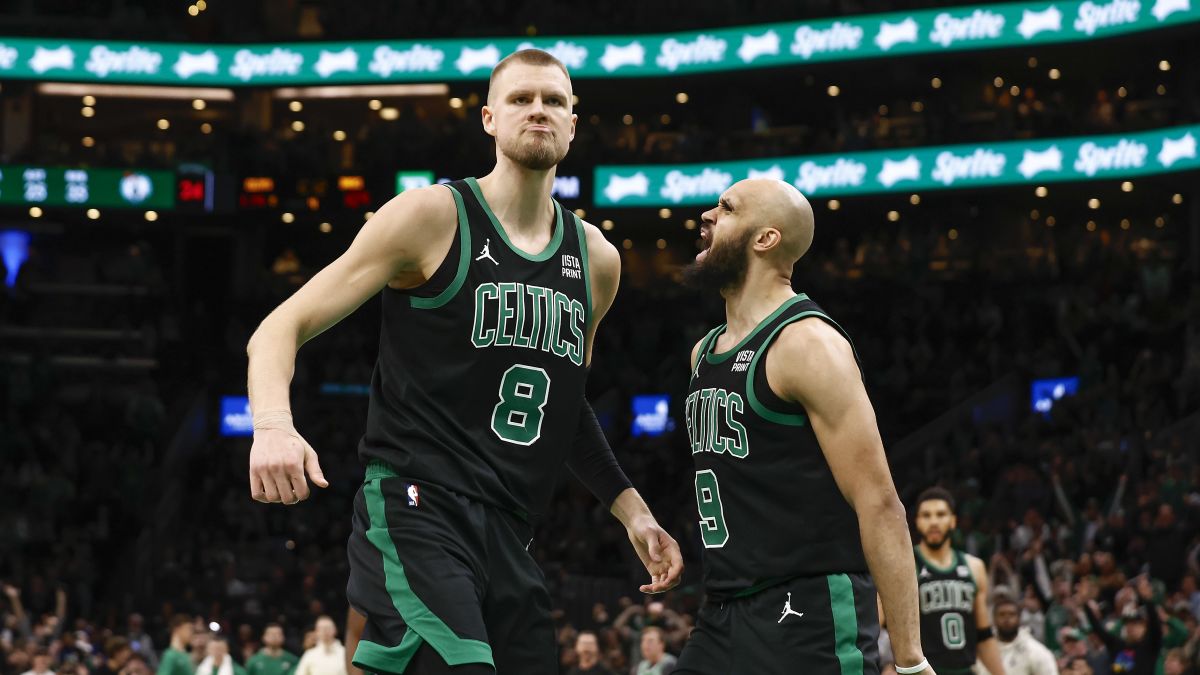BOSTON -- There’s no telling how different the Celtics will look at the start of the 2019-20 season, but make no mistake about it...
Change is coming.
You’ll see it on the bench for sure with the departure of Micah Shrewsberry, who returns to the college basketball world as an assistant at Purdue.
And there’s a good chance you will see it with a roster that, at a minimum, will undergo some level of tweaking.
But within that process, there will be terms thrown around describing the moving pieces that are sure to be part of the Celtics' lexicon as they try and regroup after what was a disappointing season.
Let's take a look at some of the common verbiage you'll hear this offseason and how that relates to the Celtics in what’s sure to be a summer of change.
Boston Celtics
UNRESTRICTED FREE AGENT
Simply put, this is the status of a player who can sign with any team they want to, with no restrictions, once their contract expires. For the Celtics, Marcus Morris falls into this category on July 1. Kyrie Irving, who will opt out of the final year of his contract, will become an unrestricted free agent, who, as we’ve seen, read and heard about all season, will be the target of a number of teams. Al Horford and Aron Baynes have player options that will allow them to test the unrestricted free agent waters as well, although it’s unclear at this point if one or both will go that route.
QUALIFYING OFFER
This is the amount that teams can offer a player selected in the first round of their respective draft class, who has just completed his fourth NBA season, to ensure that they become a restricted free agent. It’s essentially a one-year deal for a bump in pay that’s at least 30 percent more than they made the previous season, all depending on where the player was drafted. In the case of Terry Rozier, as the 16th overall pick in the 2015 draft, his qualifying offer from Boston will be worth 40.5 percent more than his salary this past season which was $3.05 million. If the Celtics decided to not make him a qualifying offer, Rozier then becomes an unrestricted free agent.
RESTRICTED FREE AGENT
A player can sign an offer sheet to play for another team (provided they have enough salary-cap space to absorb the deal), but his most recent team will get an opportunity to match the offer. This is common among first-round picks who do not sign extensions prior to the start of their fourth season. In addition to Rozier, Boston’s other restricted free agents include Daniel Theis (restricted Early Bird), Jonathan Gibson (restricted non-Bird) and Brad Wanamaker (restricted non-Bird).
"BIRD" RIGHTS
Teams are allowed to exceed the salary cap to re-sign their own free agents at an amount that’s equal to the maximum salary allowed relative to that player. It is named after Celtics great Larry Bird because the Celtics were the first team allowed to utilize this rule which they did in retaining the services of Bird. Players must spend three or more consecutive seasons with the same team without being waived or without joining another team via free agency. The Celtics have the Bird rights to Kyrie Irving, who they acquired via trade from Cleveland. Because he was acquired by trade, his Bird rights also came with him to Boston. The “Early Bird” exception applies to players who have been with the same team for two consecutive seasons. They can be re-signed up to 175 percent of their salary or the average NBA salary, whichever is greater. Daniel Theis, a player Boston hopes to re-sign, falls under the Early Bird category.
NON-"BIRD" RIGHTS
Players who don’t meet the criteria for the Bird exception or early Bird exception, fall under the non-Bird exception crew. Teams can sign these players to up to 120 percent of their salary from the previous season, or 120 percent of the league’s minimum salary, whichever is the higher amount. Aron Baynes would fall under this category. He can opt-out of his contract and be a free agent, but all indications are that he will play out the final year of the two-year, $10.6 million contract he signed with Boston last summer.
SALARY CAP
It is the amount of money teams are allowed to pay their players. The NBA has a “soft cap” which allows for exceptions so that teams can exceed the cap which for 2019-20 will be around $109 million. Like most teams, the Celtics have utilized the exceptions at their disposal to add talent and by doing so, exceed the salary cap with this upcoming season being no different.
LUXURY-TAX THRESHOLD
The whole point of being able to exceed the salary cap is to add talent, even if it means increasing the amount of salary spent. Still, the NBA doesn’t allow teams to have just a blank checkbook, either. There is a luxury-tax threshold that kicks in for teams once they exceed a certain amount in salary. For the 2019-20 season, that figure will be $132 million. Teams that exceed that amount will pay tax amount for every dollar spent above the luxury-tax threshold, depending on how far over the luxury tax they go, and whether they are a “repeat offender” which involves an even higher tax rate. The Celtics are expected to be among the teams paying a luxury tax for the just-concluded season, although their tax bill - just under $4 million according to Spotrac.com - is relatively modest compared to there fellow luxury tax-paying franchises.
Click here to download the new MyTeams App by NBC Sports! Receive comprehensive coverage of your teams and stream the Celtics easily on your device.


